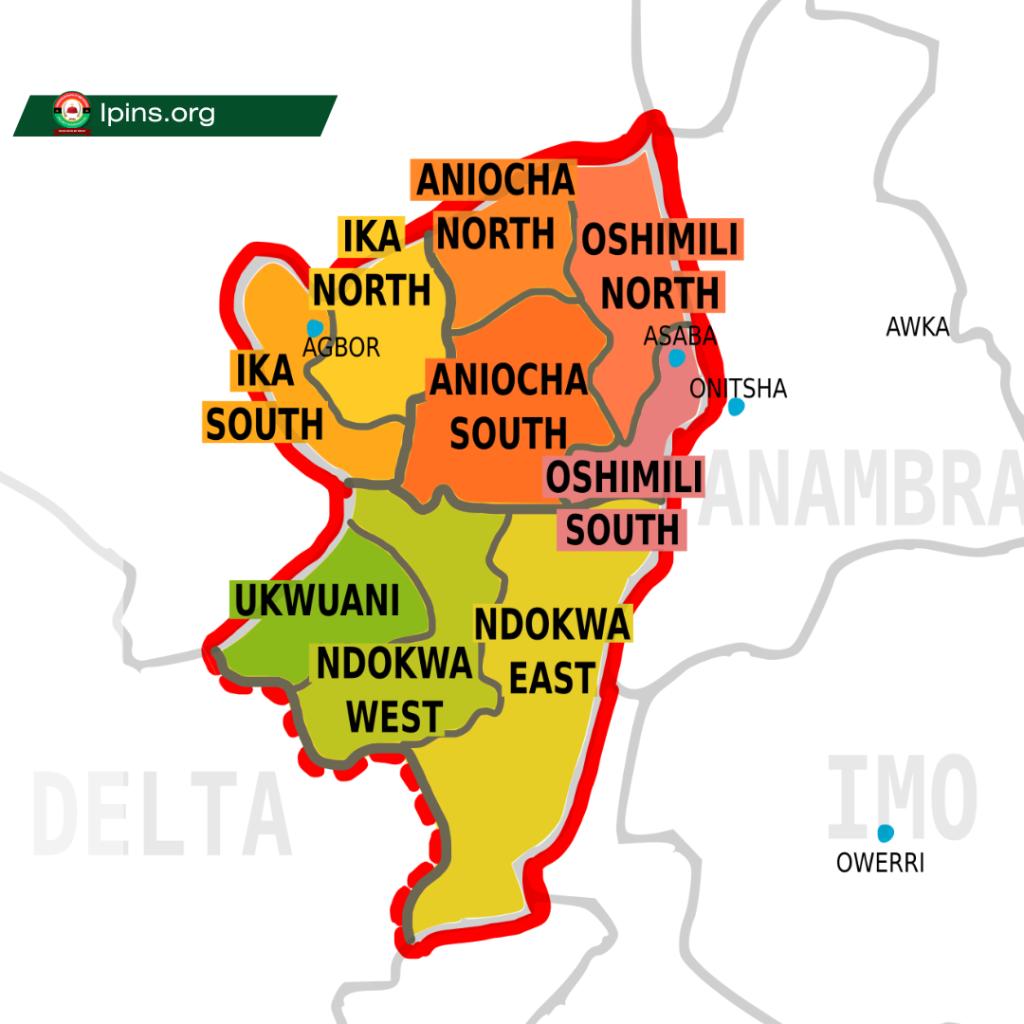Welcome To Glint News.....

Anioma State: The Beginning of Igbo Reunification and the Best Gift for the Southeast Under Tinubu’s Administration
By David C. Ani (Odogwu Na Nkanu)
The creation of Anioma State stands today as one of the most strategic and unifying aspirations of the Igbo nation — a dream that goes far beyond political reward or regional balance. It is a call to restore historical justice, to heal old wounds, and to rebuild the broken pillars of Igbo unity that were shattered by the tragic events of the Nigerian Civil War (1967–1970).
Before the Division: The Igbo Homeland United
Before the war, the Igbos flourished within the old Eastern Region — a region that encompassed what we know today as the Southeast and South-South. It was a land bound by one language, one destiny, and one spirit of enterprise. That unity was disrupted by the genocide against the Igbos, following the 1966 coup led by Major Chukwuemeka Kaduna Nzeogwu — an Anioma-born officer from present-day Delta State.
When Dim Chukwuemeka Odumegwu Ojukwu declared the sovereign State of Biafra in 1967 from Nsukka (now Enugu State), it was a direct response to the mass killings of Igbos in Northern Nigeria. What followed was one of the darkest periods in African history — a war of survival that left millions dead, families displaced, and cities destroyed.
Asaba: The Tragedy That Defined a Generation
Among the most painful scars of the war was the Asaba Massacre. The people of Asaba (Ahaba) — the very heart of Anioma — suffered unimaginable horror as Nigerian soldiers lined up and executed every visible male child and adult. It was an act of deliberate ethnic cleansing that nearly wiped out an entire generation.
In their struggle to survive, many Anioma people were forced to renounce their Igbo identity. Similar acts of forced denationalization occurred in other Igbo-speaking parts of present-day Rivers State, where names like “Umuokoro” and “Umuola” were modified to “Rumuokoro” and “Rumola” to conceal their Igbo roots. The Igbo identity became a death sentence, and survival meant silence or assimilation.
After the War: A Calculated Fragmentation
When the war ended, the political architecture of Nigeria was deliberately designed to prevent the Igbos from rising again as a united bloc. The once-powerful Eastern Region was splintered into smaller states, and later into geopolitical zones that had no geographical or cultural logic. Thus, the Southeast and South-South zones were born — an artificial division created to dilute Igbo strength and political relevance.
The British government, which had economic interests in the oil fields of the Niger Delta, advised General Yakubu Gowon to reject the Aburi Accord — an agreement that could have restored regional autonomy and peace. Instead, the new states were carved to separate oil-rich areas from Igbo control, forcing many Igbo communities into the “South-South” region and alienating them from their ancestral heritage.
Even census figures were manipulated, reducing the Igbo population and influence. Some Igbo communities in Benue and Kogi States were left stranded — politically marginalized and culturally isolated.
Anioma State: The Key to Igbo Reunification
Today, as Nigeria contemplates the creation of an additional state in the Southeast to balance the geopolitical structure, the call for Anioma State is both symbolic and strategic. It represents not just an administrative expansion, but a historic correction.
Anioma — encompassing Asaba, Ika, Ndokwa, Aniocha, and Oshimili — is undeniably Igbo in language, culture, and tradition. The people of Anioma have long yearned to reunite with their kith and kin in the Southeast, having endured decades of forced separation since the war.
The creation of Anioma State will:
Bring home over five million Anioma Igbos who have been politically trapped in the South-South.
Add Asaba, a rapidly developing city and Delta’s capital, as a major urban hub for the Southeast alongside Enugu, Onitsha, and Aba.
Expand the Southeast’s land mass, population, and economic potential.
Integrate Anioma’s vast natural gas reserves — the largest in Africa — into the economic framework of the Southeast.
This is not merely about political arithmetic. It is about the restoration of dignity and unity among a people whose destiny has been divided by history and manipulation.
Why Adada or Etiti State Is Not the Answer
While some argue for the creation of Adada or Etiti State, such proposals — though well-meaning — add little to the geopolitical or economic advantage of the Southeast. These proposed states neither increase our population nor our access to natural resources. They would simply multiply administrative structures without addressing the deeper historical injustice that fragmented Igbo land.
Anioma, on the other hand, offers the Southeast access to new economic frontiers, cultural cohesion, and a stronger voice within Nigeria’s federal structure.
A Call for Unity and Vision
The time has come for every well-meaning Igbo — from Nsukka to Owerri, from Nnewi to Abakaliki — to rally behind the Anioma project. Let us set aside the politics of ego and embrace the politics of legacy. Anioma State is not just for Anioma people; it is for the entire Igbo race.
Let us be clear: the creation of Anioma State under President Bola Ahmed Tinubu’s administration would be the single greatest political achievement for Ndi Igbo since the end of the Civil War. It would mark the beginning of a new era — the era of Igbo reunification, economic expansion, and historical restoration.
History will not forgive anyone who allows selfish ambition to stand in the way of this noble cause.
Anioma State is not just a new map on paper. It is the return of a people to their home — and the rebirth of Igbo unity.
By: David C. Ani (Odogwu Na Nkanu)
Political Commentator and Public Affairs Analyst